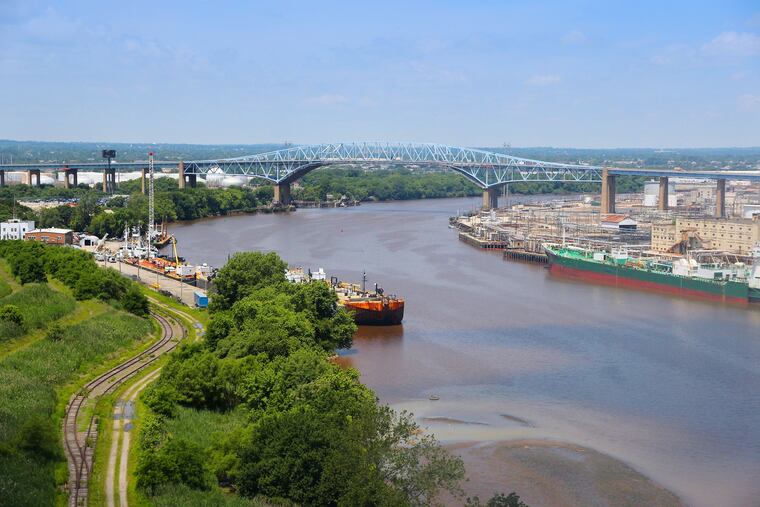We need Gov. Wolf’s Restore Pennsylvania plan to fix infrastructure | Opinion
The governor has proposed a four-year, $4.5 billion plan called Restore Pennsylvania to overhaul the infrastructure that supports us daily.

Most of us take infrastructure for granted in our daily lives — the systems that deliver clean water to our taps, prevent our neighborhoods from flooding, and process our trash once it’s picked up from the curb. This year, Gov. Wolf has proposed a four-year, $4.5 billion plan called Restore Pennsylvania to overhaul the infrastructure that supports us daily. The initiative comes at a needed time to rehabilitate aging systems.
Many people do not think about the complex systems behind our rail infrastructure, and just how long they have been serving us. We don’t often think about Philadelphia’s water mains, most of which were installed prior to 1930 — some even before 1900. We also forget how much our businesses and economy rely on infrastructure. Aviation spurs over $23 billion in the economy every year in Pennsylvania, and the state’s two busiest airports — Philadelphia and Pittsburgh — have recently undertaken modernization projects.
When planes don’t run, the gates are closed in and out of our state. When the power goes out, we’re not working; when the roads are clogged, deliveries don’t make it on time. Infrastructure moves our economy — taking supplies from ports to roads to store shelves — and moves workers from their homes to their workplaces. Each American family loses $3,400 a year in disposable income because of our inadequate and outdated infrastructure.
Wolf’s plan is a positive first step toward making sure these systems can compete in the 21st century economy. Funded by a proposed commonsense severance tax on the natural gas industry, the initiative will invest $4.5 billion over the next four years in high-impact projects in technology, development, and infrastructure. As civil engineers, we were glad to see the plan focus on these crucial investments.
In our 2018 Report Card for Pennsylvania’s Infrastructure, stormwater structures, to collect and treat rain and snow runoff, received a “D.” That’s not a grade you would be proud to hang on the fridge. In fact, we are known nationally as the state with the most combined sewer overflows, and billions of gallons of untreated sewage enter our streams every year. According to the Report Card, the average age of most sewer systems is close to 70 years, with many having pipes more than 100 years old. Wolf’s initiative will provide grants to municipalities moving forward with Pollutant Reduction Plans, helping them “implement creative solutions to comply with their stormwater mandates and transform their communities.”
We are also thankful for state funding that came from Act 89, signed into law in 2013, which advanced 2,600 transportation projects into construction. Within two months of Act 89’s passage, the Southeastern Pennsylvania Transportation Authority (SEPTA) announced plans to rebuild their rail system. That has left them better equipped to take on the 50 percent increase in ridership their regional rail has seen since 2000. While Act 89 provided much-needed funding for transit infrastructure, we recommend more funding to maintain and expand capacity. Restore Pennsylvania will help bridge the gap by increasing funding for local road upgrades, creating flexible funding options for businesses that need local infrastructure upgrades, and supporting large-scale capital projects for transit.
We hope that the Restore Pennsylvania initiative will ignite action from other state leaders. Pennsylvania needs an all-hands-on deck approach that will involve state, local, and federal government to take action. We urge state leaders to support Restore Pennsylvania and make infrastructure priority number one in 2019.
Cathy Farrell, PE, is cochair of the Pennsylvania Report Card Committee and former president of the American Society of Civil Engineers Philadelphia section.